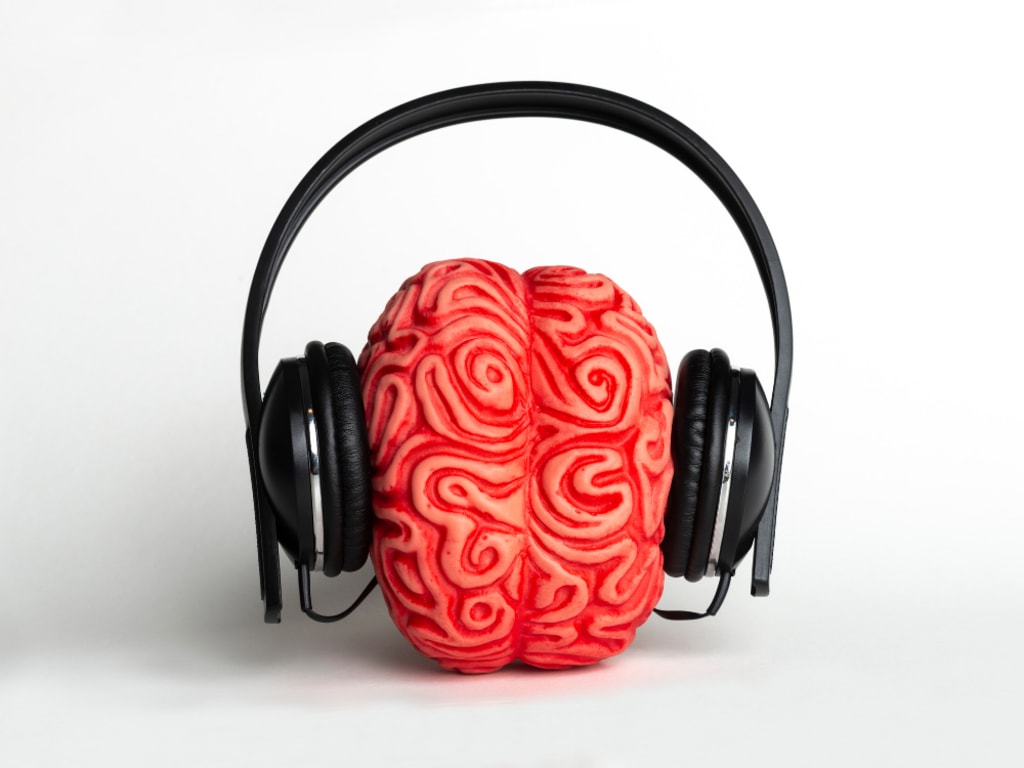The Magic of Music - How It Affects Our Brain and Mood
Embark on a mesmerizing journey as we explore the captivating realm of music and unravel its profound effects on our brain and mood

Music has a remarkable ability to touch our souls, stir our emotions, and transport us to different worlds. It has been an integral part of human culture for centuries, bringing people together and evoking powerful experiences. But have you ever wondered why music has such a profound impact on our emotions and well-being? In this article, we delve into the captivating world of music and explore how it affects our brain and mood. Join us as we unravel the mysteries behind this universal language and discover the magic that lies within its melodies.
The Science of Sound: How Music Impacts the Brain
Music has a unique way of engaging our brain in a multitude of ways. When we listen to music, various regions of our brain become activated, including those involved in memory, emotions, and motor control. Studies have shown that music can stimulate the release of dopamine, a neurotransmitter associated with pleasure and reward, leading to feelings of happiness and relaxation. It also activates the auditory cortex, where sounds are processed, and the hippocampus, a region involved in memory and emotional responses.
Music can even synchronize neural activity in different brain regions, creating a harmonious connection between them. This synchronization can enhance our ability to focus, improve cognitive skills, and promote creativity. Moreover, playing a musical instrument or engaging in musical training can have long-lasting effects on the brain, strengthening neural connections and improving cognitive function. Understanding the science behind how music impacts the brain provides us with valuable insights into its therapeutic potential and its ability to enhance our overall well-being.
The Power of Mood: Music as an Emotional Catalyst
Music has an extraordinary ability to evoke a wide range of emotions within us. Whether it's a joyful melody that uplifts our spirits or a melancholic tune that brings tears to our eyes, music can profoundly affect our emotional state. This emotional response is attributed to the interplay between the music and our brain's limbic system, which regulates emotions and memories.
Different genres and musical elements can elicit specific emotions. For instance, upbeat and fast-paced songs with major chords tend to induce feelings of happiness and energy, while slower tempo and minor chords can evoke sadness or introspection. Furthermore, personal experiences and associations with certain songs or melodies can intensify our emotional responses, making music a deeply personal and subjective experience.
The emotional impact of music extends beyond just listening. Active music-making, such as singing or playing an instrument, can amplify the emotional connection and provide a cathartic outlet for expressing and processing emotions. Music therapy has emerged as a powerful tool for promoting emotional well-being and helping individuals cope with stress, anxiety, and even trauma. By harnessing the power of music, we can tap into our emotions, find solace, and create moments of profound beauty and connection.
Music as a Stress Reliever: Calming the Mind and Body
One of the most remarkable aspects of music is its ability to reduce stress and promote relaxation. Research has shown that listening to music can have a direct impact on our physiological responses, such as reducing heart rate, lowering blood pressure, and decreasing levels of stress hormones like cortisol. Slow and soothing melodies, such as classical music or instrumental tracks, have been found to be particularly effective in inducing a state of calm and tranquility.
Music also acts as a powerful distraction from everyday worries and concerns. When we immerse ourselves in a captivating piece of music, our attention shifts away from negative thoughts and stressors, allowing us to enter a state of flow and mindfulness. This diversion can provide much-needed respite from the demands of daily life and help us achieve a sense of inner peace and serenity.
Music and Memory: Unlocking Nostalgia and Emotional Connections
One of the most enchanting aspects of music is its ability to evoke vivid memories and emotional connections. Certain songs or melodies have the power to transport us back in time, evoking long-forgotten memories and reigniting the associated emotions. This phenomenon is linked to the way music is processed in our brains, particularly in the hippocampus, a region crucial for memory formation and retrieval.
Music can serve as a powerful trigger for reminiscing and storytelling, providing a bridge between our past and present selves. It has been used in therapeutic settings to assist individuals with memory disorders, such as dementia or Alzheimer's disease, to reconnect with their personal histories and engage in meaningful interactions. The emotional connections forged through music can enhance our sense of identity and strengthen our relationships with others, creating a shared bond and fostering a sense of belonging.
Music and Motivation: Enhancing Performance and Productivity
Music has a remarkable ability to boost motivation and enhance performance in various activities. Whether it's exercising, studying, or working on a creative project, the right choice of music can provide a much-needed energy and focus. Upbeat and rhythmically engaging music can increase our arousal levels and stimulate a sense of drive and motivation.
Furthermore, music can serve as a powerful tool for establishing routines and optimizing productivity. By associating specific songs or playlists with certain tasks or activities, we can create a mental trigger that helps us transition into a desired state of mind and maintain focus. The rhythmic patterns and structured nature of music can also help regulate our pace and synchronize our movements, leading to improved coordination and efficiency in physical activities.
Music and Connection: Building Bridges Across Cultures and Communities
Music has the incredible power to transcend cultural and language barriers, bringing people together and fostering a sense of unity and connection. Whether it's through communal singing, dancing, or attending live concerts, music has the unique ability to create shared experiences and forge bonds between individuals from diverse backgrounds.
Moreover, music has been used as a tool for social change and activism, amplifying voices and spreading messages of hope and resilience. It has the capacity to inspire and mobilize people, igniting passion and driving collective action. Through the power of music, we can bridge divides, celebrate diversity, and foster a sense of global interconnectedness.
Enjoyed the read? Show your support for my future pieces with a small contribution. Every gift counts!
About the Creator
Gokhan Polard
As an experienced ERC Referral Specialist, my primary dedication lies in assisting businesses in the journey towards financial success. https://ercsolutionshub.com/
Enjoyed the story? Support the Creator.
Subscribe for free to receive all their stories in your feed. You could also pledge your support or give them a one-off tip, letting them know you appreciate their work.






Comments
There are no comments for this story
Be the first to respond and start the conversation.